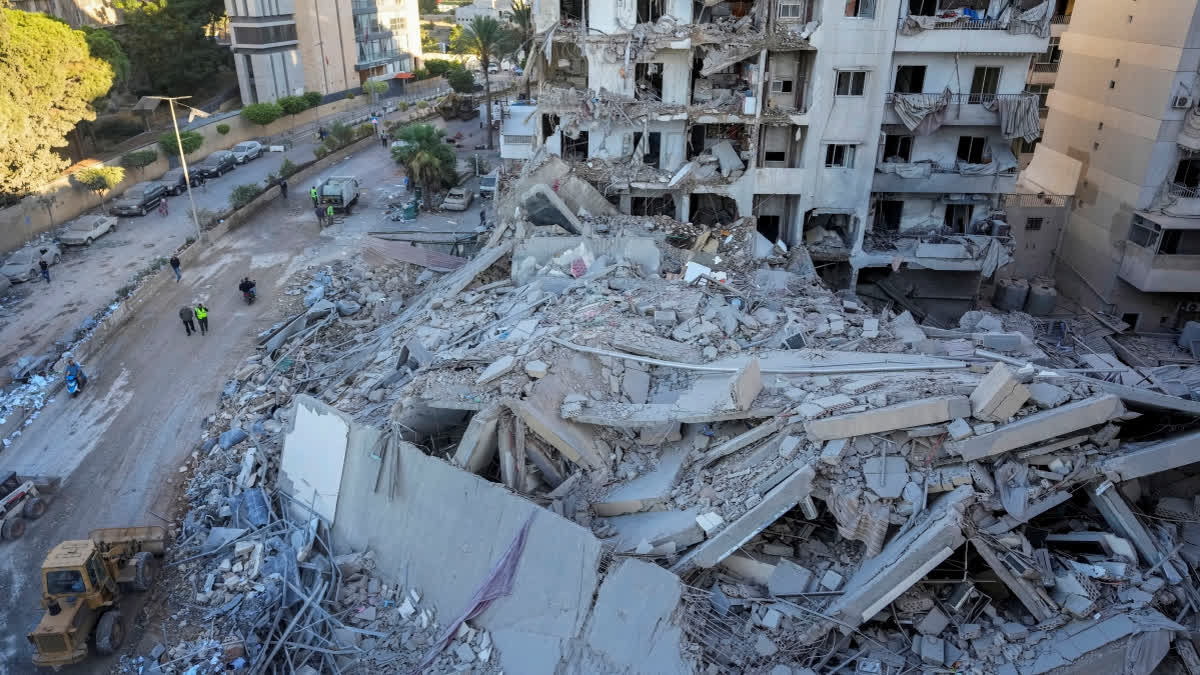Beirut:Six weeks into a ceasefire that halted the war between Israel and Hezbollah, many displaced Lebanese whose homes were destroyed in the fighting want to rebuild — but reconstruction and compensation are slow in coming.
Large swaths of southern and eastern Lebanon, as well as Beirut’s southern suburbs, lie in ruins, tens of thousands of houses reduced to rubble in Israeli airstrikes. The World Bank estimated in a report in November — before the ceasefire later that month — that losses to Lebanon's infrastructure amount to some $3.4 billion.
In the south, residents of dozens of villages along the Lebanon-Israel border can't go back because Israeli soldiers are still there. Under the U.S.-negotiated ceasefire deal, Israeli forces are supposed to withdraw by Jan. 26 but there are doubts they will. Other terms of the deal are also uncertain — after Hezbollah's withdrawal, the Lebanese army is to step in and dismantle the militants' combat positions in the south. Israeli officials have complained the Lebanese troops are not moving in fast enough — to which they say the Israeli troops need to get out first.
Reconstruction prospects — and who will foot the bill — remain unclear. In 2006, after the monthlong Israel-Hezbollah war, Hezbollah financed much of the $2.8 billion reconstruction with ally Iran's support. The Lebanese militant group has said it would do so again and has begun making some payments. But Hezbollah, which is also a powerful political party, has suffered significant losses in this latest war and for its part, Iran is now mired in a crippling economic crisis.
The cash-strapped and long paralyzed Lebanese government is in little position to help and international donors may be stretched by the post-war needs in the Gaza Strip and neighboring Syria. Many Lebanese say they are waiting for Hezbollah's promised compensation. Others say they received some money from the group — much less than the cost of the damage to their homes.
Manal, a 53-year-old mother of four from the southern village of Marjayoun has been displaced with her family for over a year, since Hezbollah began firing rockets into Israel on Oct. 8, 2023, in support of its ally Hamas in Gaza. Israel responded with shelling and airstrikes in southern Lebanon. In July, Manal's family heard that their home was destroyed. The family has now sought compensation from Hezbollah.
“We haven’t received any money yet,” said Manal, giving only her first name for fear of reprisals. “Maybe our turn hasn’t arrived." On a recent day in southern Beirut, where airstrikes had hit just 100 meters (yards) away from his home, Mohammad watched as an excavator cleared debris, dust swirling in the air. He said his father went to Hezbollah officials and got $2,500 — not enough to cover $4,000 worth of damage to their home.
“Dad took the money and left, thinking it was pointless to argue,” said Mohammad, who also gave only his first name for fear of repercussions. He said his uncle was offered only $194 for a similarly damaged home. When the uncle complained, Mohammad said, Hezbollah asked him, “We sacrificed our blood, what did you do in the war?” Others, however, say Hezbollah has compensated them fairly.
